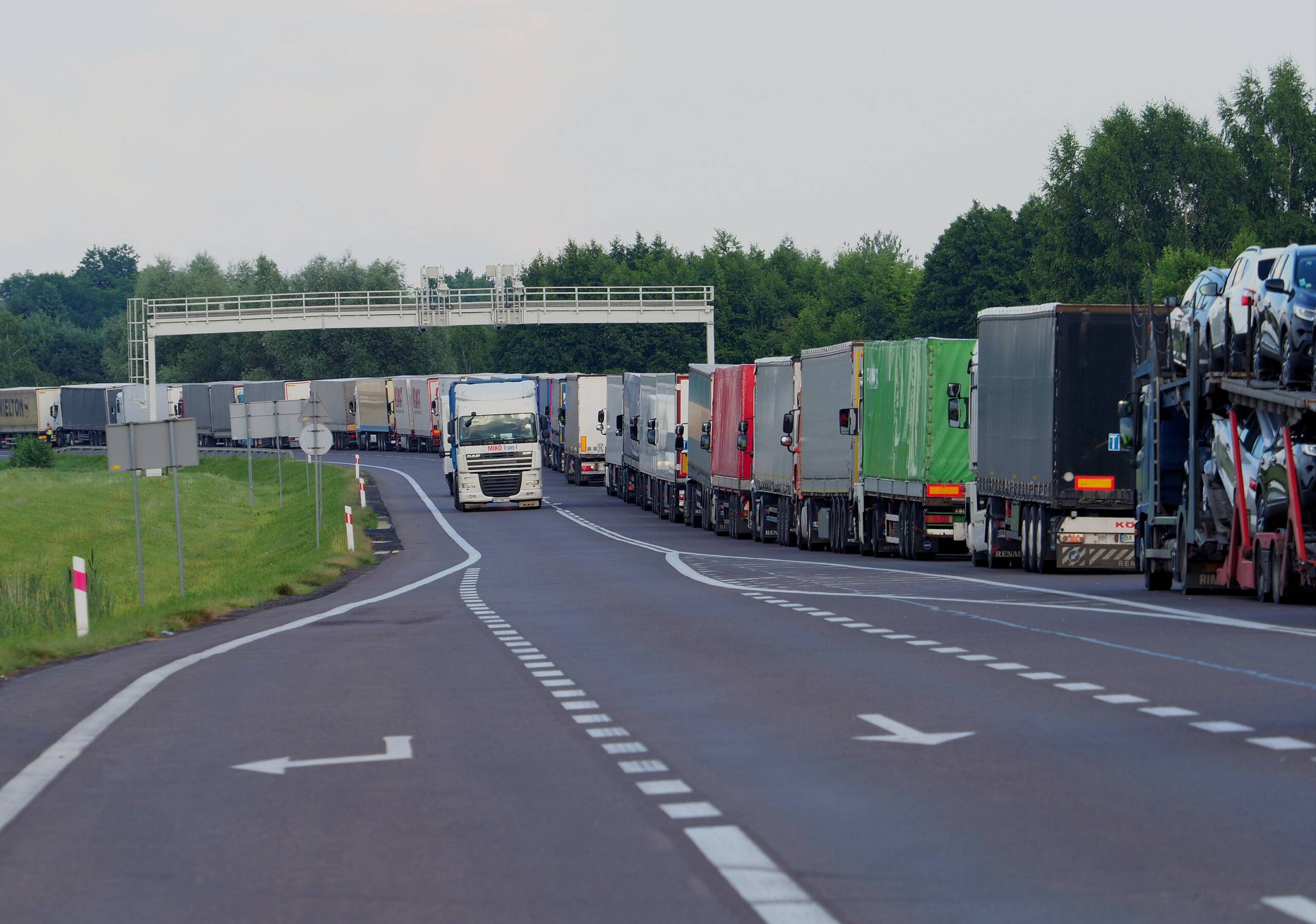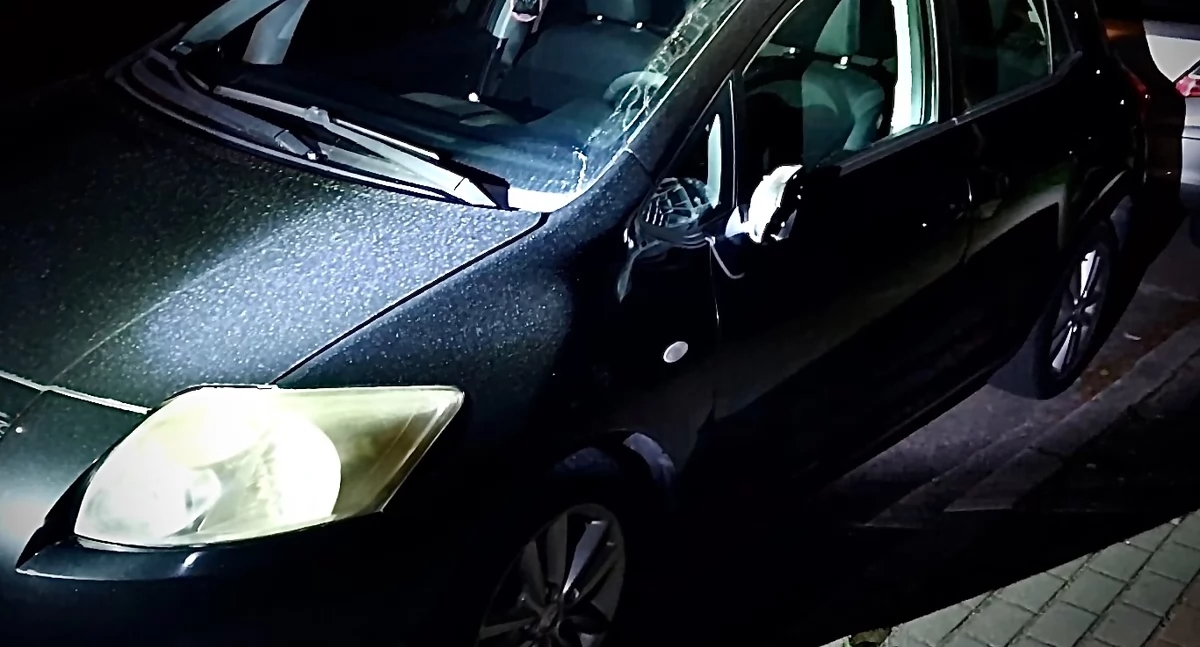Road accident, regulated in Article 177 Criminal Code, concerns the origin of an event resulting in another individual having suffered injuries or died. This provision covers both intentand unintentional violation of road safety rules.
Road accident and involuntary breach of safety rules
In the context road accident the phrase ‘although unintentionally’, referring to a breach of safety rules in land, water or air traffic, means that the offender may have acted knowingly, in violation of the rules, or may have committed this as a consequence of recklessness or negligence.
Although the infringement does not straight affect the characterisation of the act, it is crucial for the degree of illegality:
- An intentional breach of safety rules causes a higher level of blame,
- Involuntary infringement reduces the degree of lawlessness, but continues to be punishable.
(similar to: Supreme Court resolution of 23 October 2024.).
Involuntary infringement is wrong maneuveringwhich, in itself, is not prohibited, but in a given road situation leads to danger. This means that the driver had no intention of breaking the law, but his action was due to negligence or deficiency of due care.
Road Accident and Intention
A deliberate violation of road safety rules means knowingly breaking the rulesto act contrary to applicable prohibitions and orders. Perpetrator deliberately ignores road traffic rules, which increase its responsibilities.
Contribution of the victim to a road accident
Assessment of the correct behaviour of the victim in road accidents is crucial in determining criminal liability. In any cases co-financing of the victim may consequence in reduction of responsibility The perpetrators.
The basis for criminal liability for criminal offences, including road accidents, it is possible to delegate the perpetrator violations of the precautionary rules. In practice, accidents are frequently caused by more than 1 personand any behaviour may constitute a violation road safety rules.
Decision whether road accident is the consequence of the perpetrator's sole responsibility or another participants in the movement, has a decisive impact on the legal assessment of the event; and possible penalty (similarly: ultimate Court judgement of 7 February 2024.
Type of injuries caused by a road accident under Article 177(1) of the Criminal Code
The injuries referred to in Article 177(1) of the Criminal Code are defined in Article 157(1) kk This provision refers negatively to Article 156(1) kk, indicating a breach of body function or wellness disorder another than those referred to in Article 156(1) kk.
In accordance with Article 156(1) of the Directive, serious injuries include:
- visual impairment, hearing, speech or fertility,
- severe disability, severe incurable or prolonged illness, life-threatening illness, permanent intellectual illness, full or crucial permanent inability to work in the profession, permanent and crucial disfigurement or distortion of the body.
The consequence of the road accident referred to in Article 177(1) is, therefore, bodily injury resulting in a violation of body organ function or wellness disorder for a period exceeding 7 days (yes: Chełmno territory Court in judgement of 11 December 2020 Ref. Act II K 367/20).
Determination of the degree of injuries in a road accident
The degree of injuries is determined on the basis of available medical records and above all expert opinion Forensics.
Severe harm to wellness or death due to road accident
If by consequence road accident is the death of another individual or severe harm to his health, the offender is subject to imprisonment from 6 months to 8 years (Article 177 §2 kk).
Road accident and driving ban
In a road accident pursuant to Article 177(1) or (2) there is no work to prohibit driving. That means the court can, but it doesn't gotta impose specified a ban.
The court shall regulation against any vehicle or vehicle of a circumstantial kind for a period of not little than 3 years if the offender has fled the premises road accident as referred to in Article 177 of the Criminal Code or, before carrying out an examination by a qualified authority, to find the alcohol or narcotics content in the body, to consume alcohol or to usage an intoxicating agent (Article 42(2) kk).
A life ban on driving is, on the another hand, a substance of committing road accident Article 177 of the Criminal Code, if the offender commits a serious injury to wellness or death:
- was intoxicated,
- under the influence of a narcotics agent,
- escaped from the scene
- prior to the examination by the competent authority, he consumed alcohol or was taking an intoxicating agent.
Exceptions are situations justified by peculiar circumstances.
Road accident in favour of the Fund for Harmful Aid and Postpenitentiary Assistance
The court shall regulation on the victim and, in the event of his death as a consequence of an offence committed by the convicted person, to the nearest person, whose life situation deteriorated importantly erstwhile the perpetrator of a road accident from Article 177 of the Criminal Code
- He was intoxicated.
- was under the influence of a drug
- escaped from the scene
If there are more specified people, each of them is entitled to a lot. erstwhile it is not possible to identify an eligible person, it goes to the Fund for Harmful Aid and Postpenitentiary Assistance. The minimum attachment tallness is PLN 10,000 (Article 47 §1 kk).
Such rules shall not apply if the court has ruled that the harm caused by the offence has been rectified or that the harm suffered is more than PLN 10,000.
Increase in penalties for road accidents
Judgment of the Court of Justice of the European Union road accident as referred to in Article 177(1) of the Criminal Code:
- was intoxicated,
- under the influence of a narcotics agent,
- escaped from the scene
- Eat alcohol or take alcohol Drugs after the act, but before the examination by the competent authority.
In that case, the punishment shall be from the lower statutory limit of the hazard increased by half to the advanced limit, besides increased by half.
Severe harm to wellness resulting from a road accident and compensation and compensation
Pursuant to Article 46(1) kk, the court may regulation on the offender and, at the request of the victim or of another individual entitled to judgment, by applying the provisions of civilian law, the work to make good, in full or in part, the harm caused by the offence or compensation for the harm suffered. In criminal proceedings, the provisions of civilian law on the anticipation of judging pensions do not apply, but this does not prevent an unfulfilled part of the claim from being pursued through civilian proceedings.
Compensation for road accidents is compensatory. Compensation is simply a way of remedying non-material harm expressed as injury physical and intellectual suffering. In the case law of the ultimate Court, it was accepted as an indisputable rule that the victim should always receive full compensation (yes: ultimate Court judgement of 4 June 1968, I PR 157/68, OSNCP 1969 No 2, item 37; resolution of the full composition of the civilian Chamber of the ultimate Court of 8 December 1973, III CZP 37/73, OSNCP 1974 No 9, item 145; ultimate Court judgement of 30 January 2004, I CK 131/03, OSNC 2005 No 2, item 4).
Heightcompensation for serious harm to wellness resulting from a road accident
Circumstances affecting the determination of compensation and the criteria for their assessment must always be considered on a case-by-case basis in relation to the peculiar injured individual and the life situation in which he finds himself (so: ultimate Court judgement of 13 December 2007, I CSK 384/07, TSO 2009 No 2, item 20).
The concept of ‘appropriate sum’ in the context of compensation for the intangible effects of a road accident is indeterminate and the criteria have been developed in the judicature to be followed, specifying the size of the benefit to be paid to the victim. These include nonsubjective factors specified as:
- duration and strength of physical and intellectual suffering,
- irreparability of the injury,
- age of the victim,
- future prospects.
The following shall be considered as subjective factors affecting the level of compensation for the consequences of a road accident referred to in Article 177 k.k.:
- a sense of social distress,
- lifelessness,
- inability to participate actively in household matters,
- the request to usage another people's aid in everyday life.
The amount of compensation corresponding to the injury suffered should be felt and bring to the victim an emotional balance, breached by the intellectual suffering suffered (yes: Supreme Court judgement of 14 February 2008, II CSK 536/07, TSO 2010 No 5, item 47).
Reference to the compensation granted in akin cases may besides be of an indicative nature only, since it must not prejudice the rule of individualisation of circumstances determining the degree of the harm suffered by a peculiar injured individual (yes: ultimate Court judgments of 30 January 2004, I CK 131/03; of 26 November 2009, III CSK 62/09; of 28 January 2010, I CSK 244/09).
The compensation is intended to compensate for all the harm, besides future consequences, and the consequences of the event should so be taken into account in specified a way that the compensation in advance besides includes future elements of harm (yes: judgement of the Court of Appeal in Krakow of 03.07.2020 I ACa 280/19; judgement of the Court of Appeal in Lublin of 05.05.2020 I ACa 241/20).
Compensation should be compensatory in particular, which means that its amount cannot be simply a symbolic compensationbut must be economically noticeable value. At the same time, the amount of compensation must not be excessive in relation to the harm suffered, but should be ‘appropriate’, i.e. within reasonable limits, taking into account the degree of the harm to the injured personand current economical conditions and the average life rate of society (similarly: ultimate Court judgement of 28 September 2001, No. III CKN 427/00, non-publ.).
However, it is worth noting that the case law on this issue is divided, which will be discussed further.
Compensation for road accident and society's surviving rate
In the context road accident the level of redress should take into account in peculiar the degree of the harm sufferedNot just the average life rate of society. Although the standard of surviving may be complementary, it is no longer a decisive origin – especially in the face of increasing wealth fragmentation.
An earlier approach, which assumes that redress should be within reasonable limits, adapted to the average material situation of society, has become obsolete. In practice, it is crucial that compensation is economically delicate to the victim and adequate to marketplace economy realities (similar to: Supreme Court judgement of 14 January 2011, I PK 145/10, OSNP 2012 No 5-6, item 66 and the judgments of the ultimate Court of 29 October 1997, II CKN 416/97; of 19 May 1998, II CKN 764/97; of 18 November 1998, II CKN 353/98; of 29 October 1999, I CKN 173/98; of 12 October 2000, IV CKN 128/00; of 11 January 2001, IV CKN 214/00; of 12 September 2002, IV CKN 1266/00; of 11 October 2002, I CKN 1065/00; of 10 February 2004, IV CKN 355/02; of 27 February 2004, V CK 282/03; of 28 June 2005, I CKN 777/05; of 10 March 2006, IV CSK 80/05, OSNC 2006 No. 175 and of 20 April 2006, IV CSK 99/05, territory Court of Chełm in Case Célemn of 11 December 2020, I CK II, 367).
The life rate of the injured individual shall not affect the amount of compensation for the harm suffered, shall not find the amount of compensation due to him (yes: Supreme Court judgement of 17 September 2010, II CSK 94/10, OSNC 2011, No 4, item 44).
Severe harm to wellness due to road accident and OC insurance
The civil-law repercussions of harm to wellness due to a road accident may be Investigation by the injured party’s claim for compensation against the insurer, based on Article 822(1) and (4) of the Code in conjunction with Article 444(1) of the Code in conjunction with Article 445(1) of the Code. This claim does not gotta prevent the erstwhile payment to the injured organization in the course of the winding-up procedure for compensation and compensation.
Pursuant to Article 822 k.c. by a civilian liability insurance contract, the insurance undertaking undertakes to pay the compensation specified in the contract for harm caused to 3rd parties against whom the liability for harm is borne by the policyholder or the individual in whose behalf the insurance contract is concluded. In addition to the above, the issue of civilian liability agreements is regulated by circumstantial provisions, i.e. the provisions of the Act of 22 May 2003 on compulsory insurance, Insurance warrant Fund and Polish Communication Insurance Office.
Pursuant to Article 34(1) of that Law, the holder of motor vehicle insurance is entitled to OC compensation, if the holder or driver of a mechanical vehicle is liable to compensation for the harm caused by the movement of that vehicle, resulting in death, bodily injury, wellness disorder or loss, demolition or harm to property. This insurance is covered by the civilian liability of any individual who controls a motor vehicle during the period of insurance liability has caused harm to the movement of that vehicle (Article 35 of the Act). The liability of the insurance undertaking under the contract of insurance of the OC to make good harm to property and non-material (grievances) shall be affected by the liability of the insured person, which is the holder or driver of the vehicle.
In accordance with Article 444(1) of the Code, in the event of harm to the body or in the event of a wellness disorder, compensation shall cover all costs resulting from this. According to Article 445 § 1 k.c., in the cases provided for in the preceding article, the court may grant the injured individual an appropriate sum for compensation for harm suffered (yes: Regional Court of Szczecin-Leadership and West in Szczecin in judgement of 10 September 2020 No. I C 582/18).
Road accident and unfastened safety belts
Not fastened safety belts by the victim in road accidents may have a crucial impact on the assessment of the liability of the offender. If it is shown that with seat belts fastened the effects of Article 177(2) of the Criminal Code would not have occurred, this condition may affect the degree of the penalty, since unattached belts may be regarded as contributing to the deterioration of the accident.
The Court of First Instance may take this into account erstwhile determining the degree of responsibility of the offender and the possible relaxation of the penalty. Final evaluation depends on analysis of the circumstances of the event and the opinions of experts, which shall find to what degree the failure to fasten belts has affected the resulting injuries (yes: Supreme Court judgement of 13 July 2023.).









![Runęła ściana kamienicy w Wielkopolsce. W budynku przebywała starsza kobieta [ZDJĘCIA]](https://storage.googleapis.com/poludniowaoficyna-pbem/zwielkopolski24/articles/image/d848a2a9-2140-417b-8ff8-4cb559420e6a)






